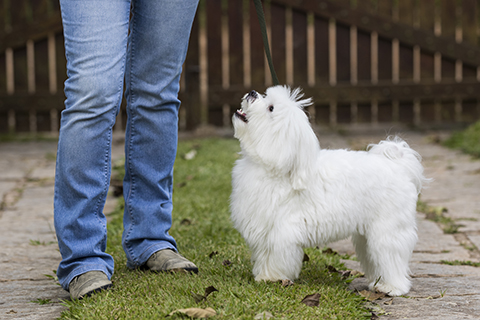Solving Great Mysteries: Explaining the Small Dog Lifespan
 The Egyptian pyramids, crop circles, Stonehenge…there are some mysteries in this world that continue to go unexplained. Perhaps one of the more compelling mysteries for animal lovers everywhere, though, is trying to figure out why some dogs live to be 20 while others are lucky to get to 8 years of age.
The Egyptian pyramids, crop circles, Stonehenge…there are some mysteries in this world that continue to go unexplained. Perhaps one of the more compelling mysteries for animal lovers everywhere, though, is trying to figure out why some dogs live to be 20 while others are lucky to get to 8 years of age.
Read on with us at Oakland Veterinary Referral Services to unravel the mystery that is the small dog lifespan.
Live Long and Prosper
So how long can you expect your dog to live? There are many different factors that affect the answer to this question, and of course good nutrition, wellness care, and a safe environment can all help your pooch maximize his or her lifespan.
To a certain extent, each dog is going to live as long as his or her genetic makeup no matter the circumstances.
Consider the following average lifespans:
- Great Dane – 7 years
- Boxer – 9 years
- German Shepherd Dog – 11 years
- Labrador Retriever – 11 years
- Pomeranian – 14 years
- Chihuahua – 17 years
Do you notice a trend? In general, the smaller the dog, the longer his or her expected lifespan. This isn’t a fluke. So, what gives?
The Small Dog Lifespan Explained
The small dog lifespan phenomenon is one of those great unsolved mysteries. Unlike out-of-body experiences, though, science is making some headway to explaining why your Shih Tzu is likely to live a lot longer than your Giant Schnauzer.
There are three main working theories to explain this finding:
- Larger dogs age faster (i.e. one year in their life is longer than one year in the life of a smaller breed)
- Larger dogs age earlier (and thus experiencing age-related issues sooner)
- Larger dogs live riskier lives in general
When scientists take a look at these theories, the data seems to point to the first option holding the most water. Larger dogs seem to move through life a little more quickly than do their smaller counterparts.
The mystery lies within why this would be the case. The research is finding that a molecule called IGF-1 may play some role in the aging process, with large breed dogs having many more circulating in their bodies. The jury is still out on how this actually affects that aging process and what implications this growth factor molecule holds.
For the moment, your pet’s inherent lifespan is beyond our control. There are some things, though, that you can do in order to keep your pet healthy as long as possible, such as maintaining routine wellness care, excellent dental care, and good parasite prevention.
No matter how long you have your pet, chances are it isn’t quite long enough. We can only hope that one day modern science will solve the mystery of the small dog lifespan and allow us to enjoy all of our pets for longer and longer.


